Get to know more about the product

How to Do Effective SMS Marketing for Restaurants
You may have heard that 90% of restaurants fail in their first year. If you’ve already been in the industry for a while, you probably know that this figure is flat-out false. Economists from the University of California, Berkeley dug into the numbers and found the actual statistic is closer to 17%. That said, no one wants to be in that 17%. Especially when the median cost to open a restaurant is over $370,000.
You may have the perfect menu, ideal location, and a great team, but what are you doing to market your business? No restaurant can survive without consistent demand. Text message marketing allows restaurants, coffee shops, or other businesses in the food service industry to bring in new customers and keep them coming back.
This guide will walk you through everything you need to know about how to drive customer traffic using texts. Not only that—but by the end you’ll understand how to drive comp sales, grow unique transactions, and increase check averages, all with one tool.
Why Should Your Restaurant Try Text Marketing?
If you’ve ever tried to introduce a new step to your restaurant’s standard operating procedure, you know that convincing your team to try something new can be a challenge. So before we dive into how to use text marketing, let’s talk about why it’s well worth the effort.
6 Reasons Why Your Restaurant Should Text
1. Texts are popular.
Pew Research Center found that 97% of smartphone owners use their text messaging feature every day. According to another a survey of over 2,200 participants, the average person sends or receives over 40 texts per day. How many of these messages are from your restaurant?
Your customers are already on their phone. Text them.
2. Texts are a “guaranteed read.”
No text goes unseen, seriously. That’s why The New York Times recommended text message
marketing in their small business
guide, trumpeting it as a “guaranteed read.”
The facts back up their claim: 98% of all texts are read. For some perspective, the open rate of emails from restaurants is typically 20%. If you don’t want your restaurant’s marketing messages to be ignored, send them by text.
3. Texts are instant.
It’s not just that all texts are read, it’s that
they’re read immediately. 90% of texts are read within three minutes. Think
about how long some emails have been sitting unread in your inbox. Check the
coupons sitting on your counter or on your fridge. How many have expired?
Bring in traffic immediately, not later. Send your offers through text message instead.
4. Texts are intimate.
The text message inbox is unlike any other inbox, such as email or messenger. It’s filled with messages from close friends, family, and love interests. That’s why it’s so closely protected. Unlike other marketing channels, customers have to give you permission before you text them.
When people accept your texts from your restaurant, they don’t welcome you as some faceless business. They welcome you as a friend. They want messages from you, the real-life person behind the counter.
5. Texts are mobile and don’t get lost.
Coupons get lost. Menus become buried in junk drawers.
Emails are deleted. Text messages, on the other hand, are available anytime
your customer wants to refer to them.
6. Texts are affordable.
The cost of text campaigns is as little as one cent per text, and well worth the return on investment. Most restaurants don’t have piles of extra cash for a TV spot, and don’t need a full-on ad campaign—they might just need a push during slowdowns and or a better loyalty program.
Business-wise, text marketing simply makes sense for restaurants. No wonder big brands like Arby’s, Hardee’s, Carl’s Jr., and Pizza Hut, among many others, are using text message marketing.
How Does SMS Marketing for Restaurants Work?
Now that you know why text message marketing is a good decision for any restaurant, let’s go over a few key features that are essential to a successful SMS marketing strategy.
Keywords: This is a word or phrase customers can text to your number to sign up for messages.
Campaigns: A campaign is a text sent to a group of people. This could be a small group, such as just servers, or a larger group like your entire customer base.
MMS: MMS stands for Multimedia Messaging Service. This feature is included with every Text Back Ai plan and allows you to include photos and videos in your messages.
Autoresponders: This is a message that automatically goes out a set period of time after your customers join your list. You can set the delay to minutes, hours, days, weeks, or even months.
Segments: A segment is a group of subscribers that has something in common. You can use the data from your POS system to create segments within your list and send relevant, targeted messages to each one.
What Can You Do With SMS Marketing for Restaurants?
You may still be wondering, “What should I actually include in my messages?” After working with leaders in the food industry across the country, we’ve identified the most important type of marketing messages your restaurant should be sending.
Example Marketing Messages for Restaurants
Here are six great text campaigns, along with examples, that are sure to keep your customers coming in and coming back.
Mobile Coupons: Send a campaign with a mobile coupon to invite new customers. Use autoresponders to send out coupons a few days after a customer’s first visit. You can even use MMS to include an image of your food or a scannable barcode.
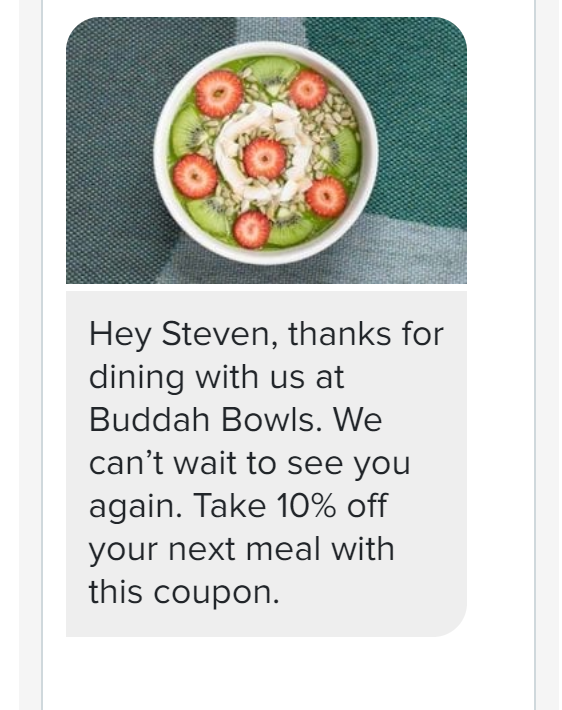
Limited-Time Offers: LTOs and text messages are a perfect pair. Send time-sensitive discounts to drive immediate traffic, speed up slowdowns, and fill chairs. For example, TextBack Ai customer uses texting to announce limited-time menus.
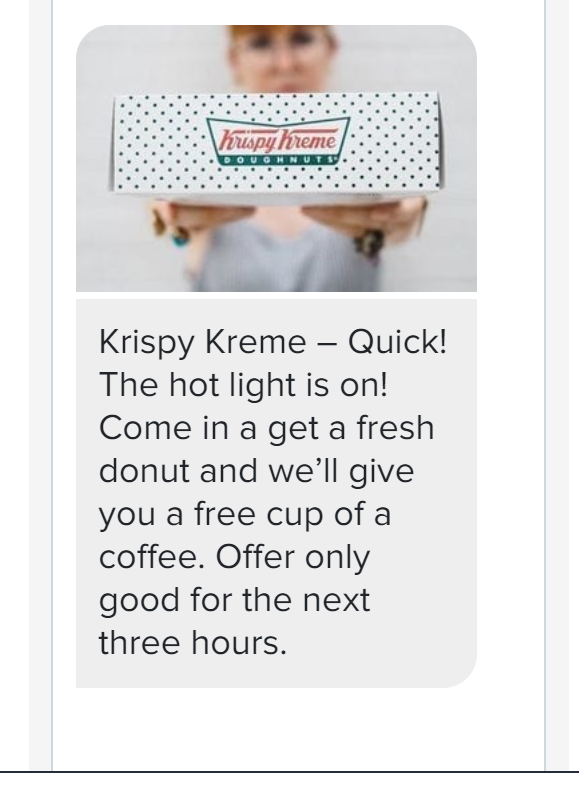
Weekly Specials: Don’t keep your seasonal items and weekly specials a secret. Tell your customers about them. Click here to read a case study about how Main Squeeze Juice company gets more customers through the doors using weekly specials.
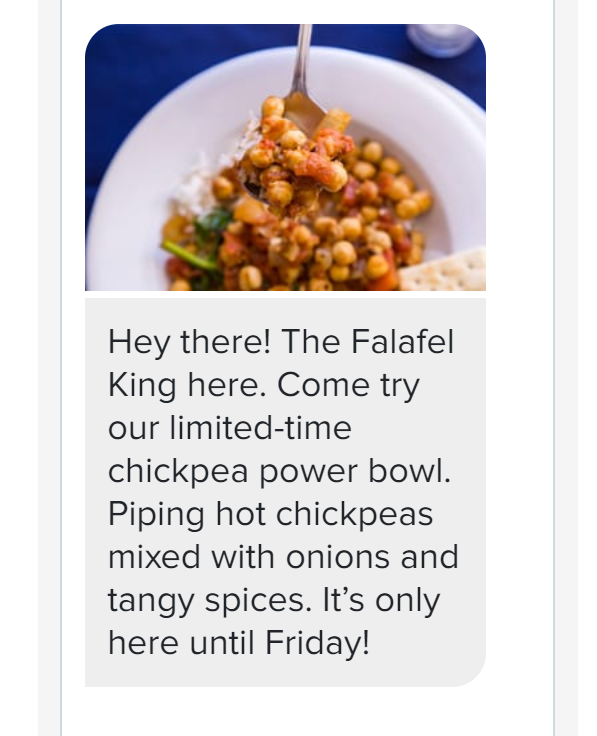
Events: Notify your customers about special events and musical guests.
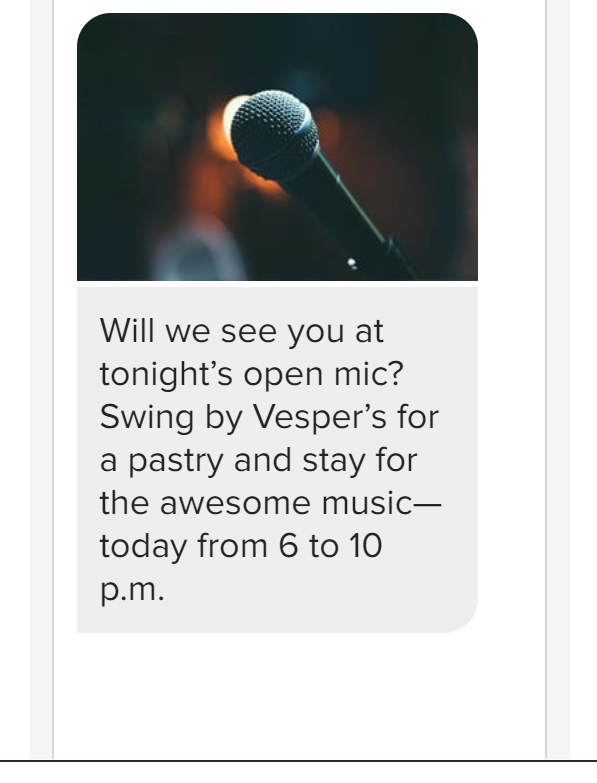
Sweepstakes: With a text to win contest, all people have to do is text a keyword to your number and they’ll be entered to win. Collect new contacts with a sweepstakes, then turn them into new customers.
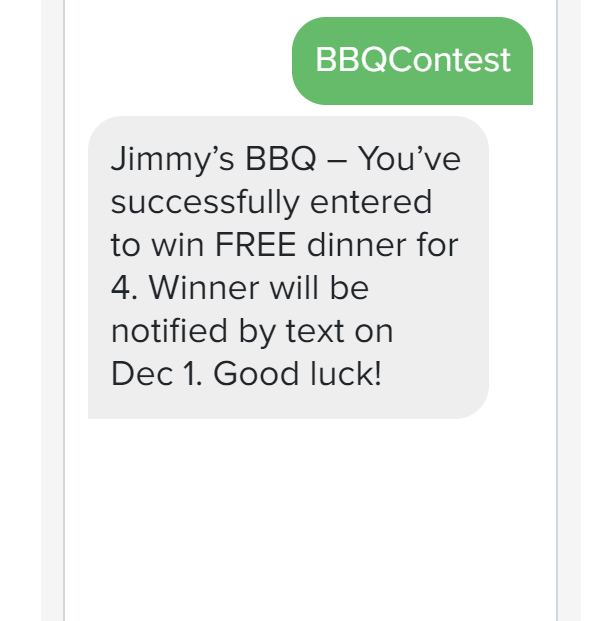
Polls: Another way to grow your subscriber list is to run a text to vote poll. Have customers vote on their favorite dishes or upcoming specials.
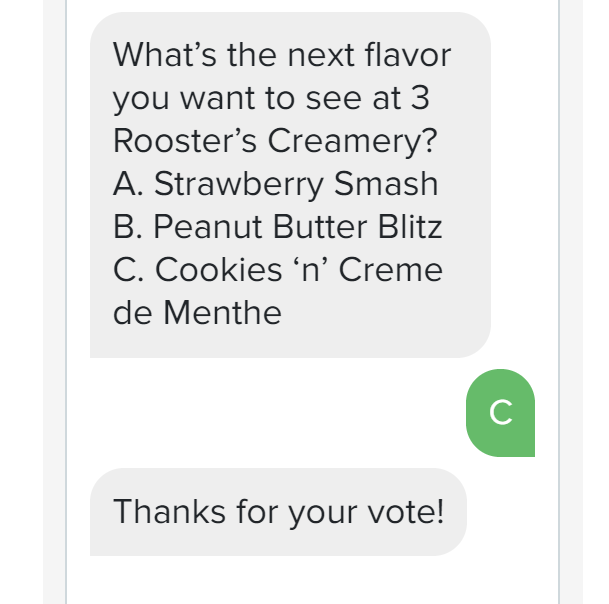
Reservation Paging System
Text messaging is great for getting customers in the door, but it can also be used to help your front-of-house run smoothly.
Waitlist Text: Ask customers for their phone numbers when they walk in, then text them when a table is ready. If you want to send these customers marketing texts later on, be sure to ask them for permission first.
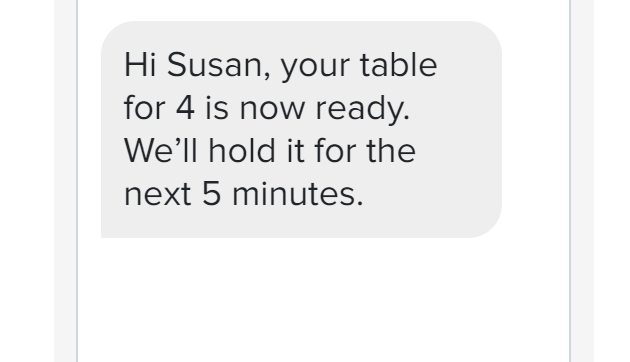
Using Text Messages for Employee Communication
Our restaurant texting system allows you to have unlimited lists of contacts. Create a list for customers, and another for your team members.
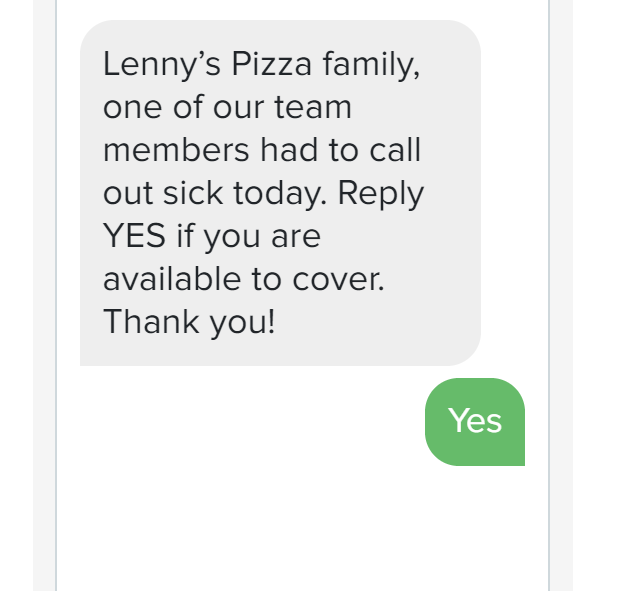
Send Schedule Updates: Keep your team aware of any shift changes by sending out a link to the latest schedule by text.
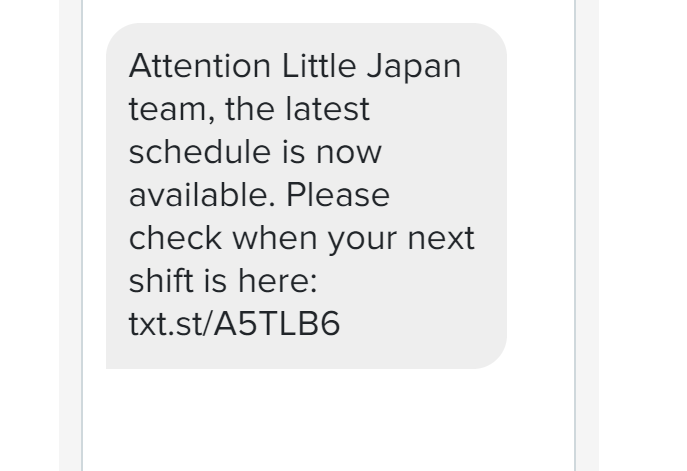
Fill Open Positions: Use text messages to facilitate hiring. Create a keyword for open positions then create an autoresponder for interested candidates.
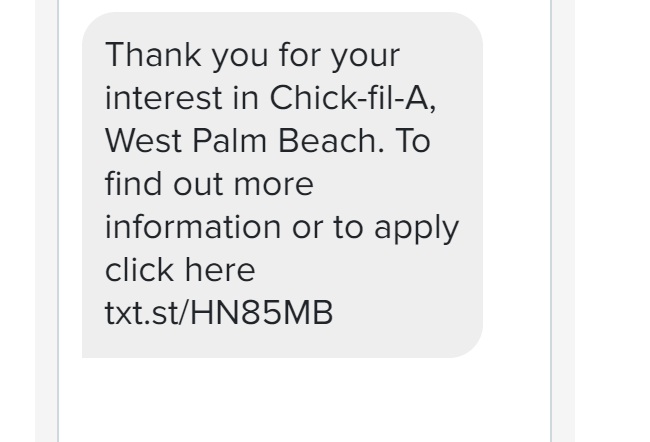
4 Steps to Get Started with SMS Marketing for Restaurants
Alright, so now you know there’s plenty you can do with a restaurant texting system. Maybe you’ve even gone ahead and signed up for a free trial. Follow the steps below to get started.
1. Reserve Your Keyword
You start by reserving a keyword. A keyword is your exclusive code that people will use to opt in to receive your messages.
Your keyword should also be easy to remember and should represent your restaurant. Keep it short and sweet.
For example, if you run Primo’s Steakhouse, “PRIMOSSTEAKHOUSE” would be way too long—something like “STEAK” or “PRIMOS” would be perfect.
2. Import Existing Contacts
You also have the ability to import contacts with TextBack Ai. If you have a database of customer contacts, you can upload them into your account in seconds.
Contacts that you import into our system must have given express consent to be contacted. Texting any numbers that you have not collected organically is illegal and strictly against Textback Ai’s anti-spam policy.
3. Incentive Customers to Sign Up
Now that you’ve got your keyword, you should give your customers some reason to sign up for your texts. Some of your guests will opt in simply because they love your restaurant and want to hear from you. But you should try to collect as many opt-ins as possible—the larger your list, the larger the profits you pull in as a return.
Some guests will be hesitant to share their phone numbers—for these hard-to-get types, a little incentive will go a long way.
Here are three incentives that never fail to bring in new subscribers:
On-the-Spot Discounts: Your guests will love getting deals sent to their phones in the future. They’ll love a deal now even more. Offer an immediate discount for signing up in the restaurant.
Get 15% off your meal today! Just text DINER to 555888 for an instant discount and monthly coupons.
Free Gifts: No one can resist the allure of getting something for nothing. Offer your guests a free appetizer, dessert, or drink in exchange for signing up for your texts.
Join our text club today and receive a FREE dessert! Text HUNGRY to 555768.
Sweepstakes and Giveaways: If you inform entrants ahead of time, you’re free to text them with promotional messages for months after the contest is over.
Win a lifetime supply of our secret BBQ sauce! Just text JIMMYS to 555666 for your chance to win and join our VIP list.
Whether you’re texting guests discounts, coupons, specials, or event reminders, remember that these benefits are often incentive enough to get opt-ins.
Market your campaign as a friendly service, rather than a way to spam them with ads. Let your patrons know about the benefits of subscribing with a clear message.
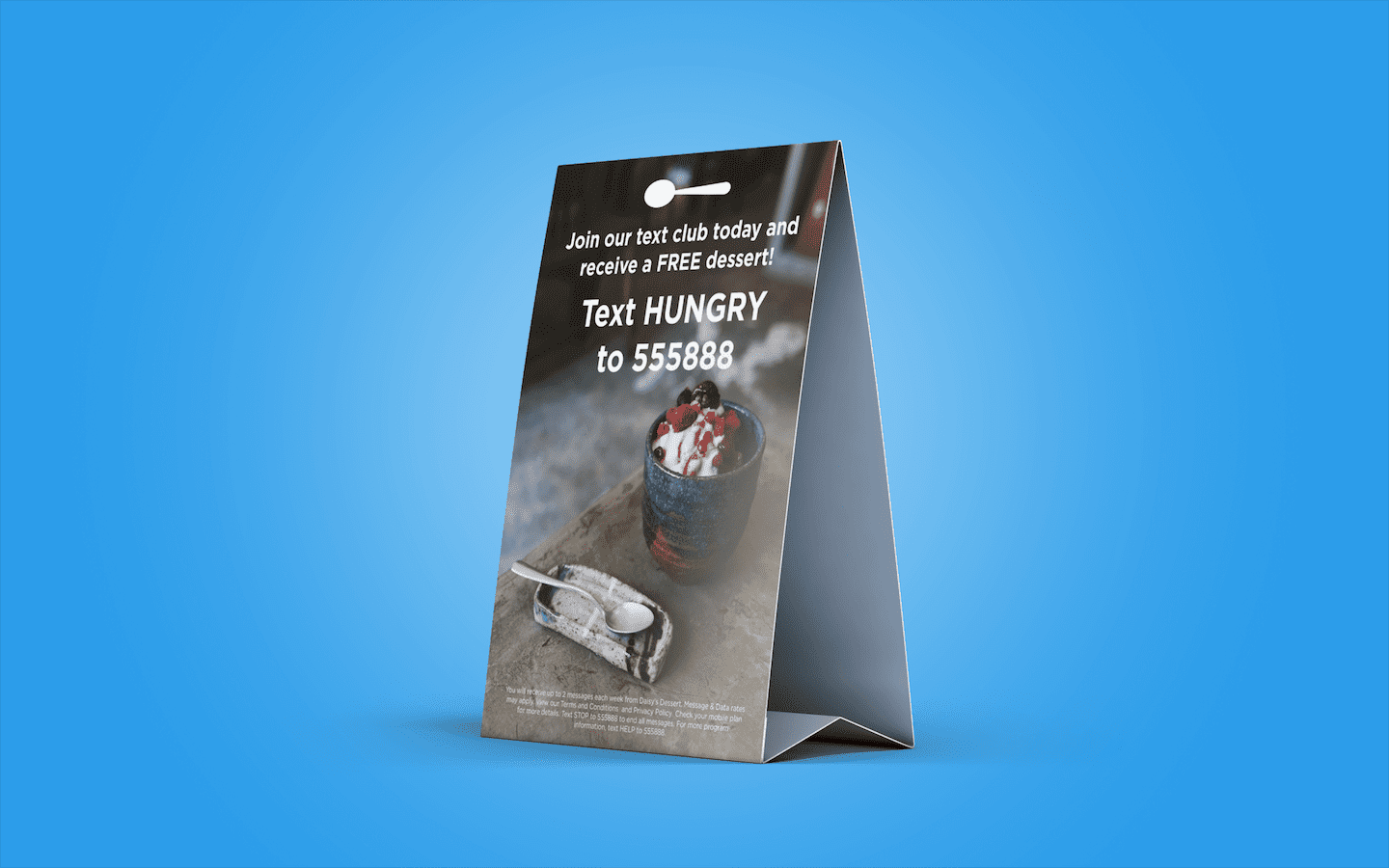
4. Advertise Your New Text Loyalty Program
No matter how enticing your incentive is, no one will subscribe to your text campaign if they don’t know about it. And they won’t know about it until you tell them.
Which brings us to an essential point: You have to advertise your text campaign.
Get the word out! Advertise your incentive wherever you can. Be sure to include a call to action containing the ridiculously simple instructions to join (e.g., “Text HUNGRY to 555888”).
Be clear about the benefits of subscribing and what exactly it is you’re offering. People already want what you’re offering: Your challenge is to make them realize how simple it really is.
Because your call to action is so succinct and your message so clear, it’s easy to promote your text campaign almost anywhere. If you need some inspiration, check out this story about Mendocino Farms, as fast-casual chain, advertised text marketing program prior to launching online ordering.
Advertise your keyword and short code in all of the following places:
- Menus
- Receipts
- Table tents
- Placemats
- Window signs
- Cash register
- Website
Getting your patrons to text your keyword to our short code may be the easiest way for them to opt in, but it’s not the only way.
Use the personal touch of your servers. Instruct your servers to offer customers a special deal (e.g., free dessert or 20% off their bill) for opting in. This is an extremely effective method to use after a meal but before the check.
“Could I interest you in a complimentary dessert tonight, along with free text coupons for the future?”
Collect business cards and numbers in a fishbowl by your register. Advertise it as a way to sign up for special discounts or to enter your sweepstakes.
Drop your business card or phone number in the bowl for a chance to win a $100 gift certificate and get great deals texted to you in the future.
Two Disclaimers Your Advertising Should Include
Your advertisement should also include two necessary elements: a disclaimer and a notice of frequency.
The disclaimer simply serves to let the customer know that their normal costs for text messaging applies. The standard form of this disclaimer is “Message and Data Rates May Apply.”
The notice of frequency just means that you should inform guests of how many texts they’ll receive. Best practice is to send two to four texts per month. Sending significantly more texts than advertised could result in some heavy fines.
More reading about SMS marketing:

